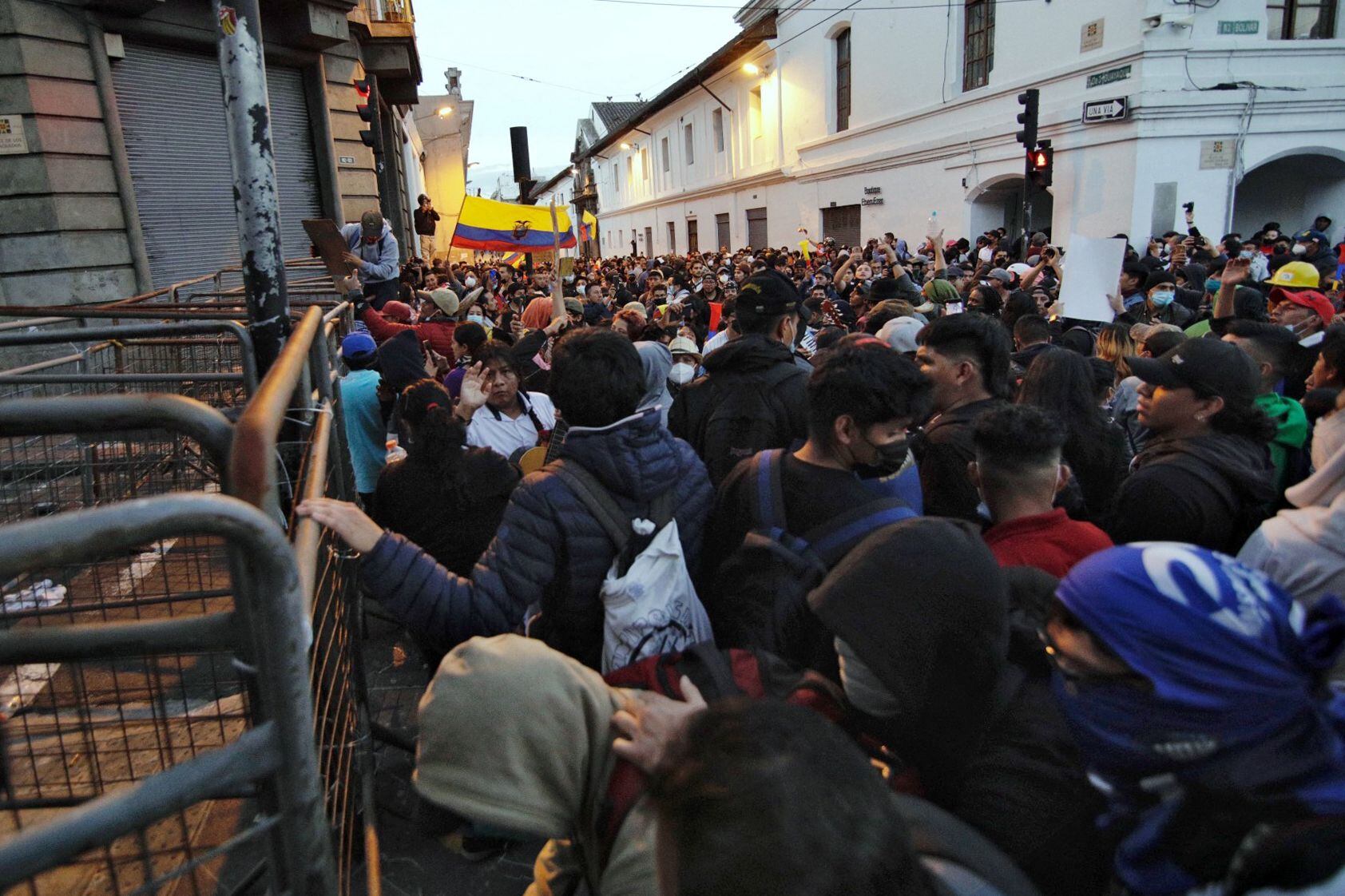Leaders of various transport unions Ecuador On Thursday, they ruled out joining the national strike called by the indigenous movement against the high cost of living and ratified their willingness to hold direct talks with the government of President Guillermo Lasso.
That conclusion emerged after the meeting that the leaders of heavy transport (trucks) held with Lasso, at the Palacio de Carondelet, the government house in the historic center of Quito.
Look: National strike in Ecuador: closure of roads and strong police deployment in the center of Quito due to protests
The appointment took place after a group of transporters momentarily closed a road access in the south of Quito on Wednesday and after the sit-in made by taxi drivers with their units in a central sector of the capital in support of the national strike.
During the meeting, the representatives of this sector expressed their commitment to continue dealing with issues of interest in dialogue spaces and reaffirmed that they will not participate in acts of “destabilization”, as the Government fears could happen with the social protests.
“This government is always willing to talk and dialogue, with open doors, without impositions, without violence, since it affects Ecuadorian families,” Lasso remarked during the meeting, according to the General Secretariat of Communication of the Presidency.
On his side, the Minister of Transport and Public Works, Marcelo Cabrera, highlighted the will of the president to listen to the unions and analyze their demands.
LASSO “POSITIVE SUPPORT”
President Lasso “has indicated his positive support for the requests” of the carriers who attended the invitation to dialogue, solutions that “in the coming days will be specified,” Cabrera remarked.
Likewise, the minister highlighted the important role that transport has played in the post-covid economic reactivation process promoted by the Government since May 2021.
The president of the National Federation of Interprovincial Transport Cooperatives (Fenacotip), Ábel Gómez, assured that his organization will not participate in the social mobilizations either.
“We are committed to Ecuadorians and we need a reactivated country that moves forward,” said Gómez after ruling out lending himself to “political maneuvering that at the time puts all citizens in negative commitments and unbalances the country.”
The president of the National Federation of Heavy Transport (truck drivers), Luis Felipe Vizcaíno, called for “national dialogue so that democracy is respected in Ecuador.”
Vizcaíno stressed that the spaces for dialogue with the Government, which have been worked on for some time, seek to generate better working conditions for carriers, such as safety on highways and in cities.
He also referred to the creation of new specific lines of credit planned for his sector. “This country can only move forward to the extent that there is a dialogue,” Vizcaíno concluded.

CALL FOR “PEACEFUL SOLUTION”
Finally, the Minister of Government, Francisco Jiménez, said that the Executive remains firm in the strategy of dialogue and the search for consensus as the best way to peacefully resolve conflicts.
With this objective, Jiménez said, President Lasso ordered that a price control plan be applied in the markets, which seeks to put an end to speculation in basic necessities, which is one of the demands of the Confederation of Indigenous Nationalities. (Conaie), the main promoter of the protests against the Government.
Jiménez, however, stressed that the regime will not tolerate excesses or acts of vandalism during the indefinite mobilization that Conaie has called since last Monday.
So far the protests have left at least twenty arrests, including the president of the Conaie, Leonidas Iza, the main promoter of the protests, who has been released on parole, and no less than 32 injured, of which 22 were reported by the Conaie and 10 by the Armed Forces.
Source: Elcomercio
I, Ronald Payne, am a journalist and author who dedicated his life to telling the stories that need to be said. I have over 7 years of experience as a reporter and editor, covering everything from politics to business to crime.

:quality(75)/cloudfront-us-east-1.images.arcpublishing.com/elcomercio/OJK3SN4NR5EO5ETNONM4TRL5VE.jpg)

:quality(75)/cloudfront-us-east-1.images.arcpublishing.com/elcomercio/OC6M24QYRNFSNM7KCR7UUFIIJI.jpg)


:quality(75)/cloudfront-us-east-1.images.arcpublishing.com/elcomercio/BQIHZQ2F7BDBPNAUP3BX4Y37DQ.jpg)
